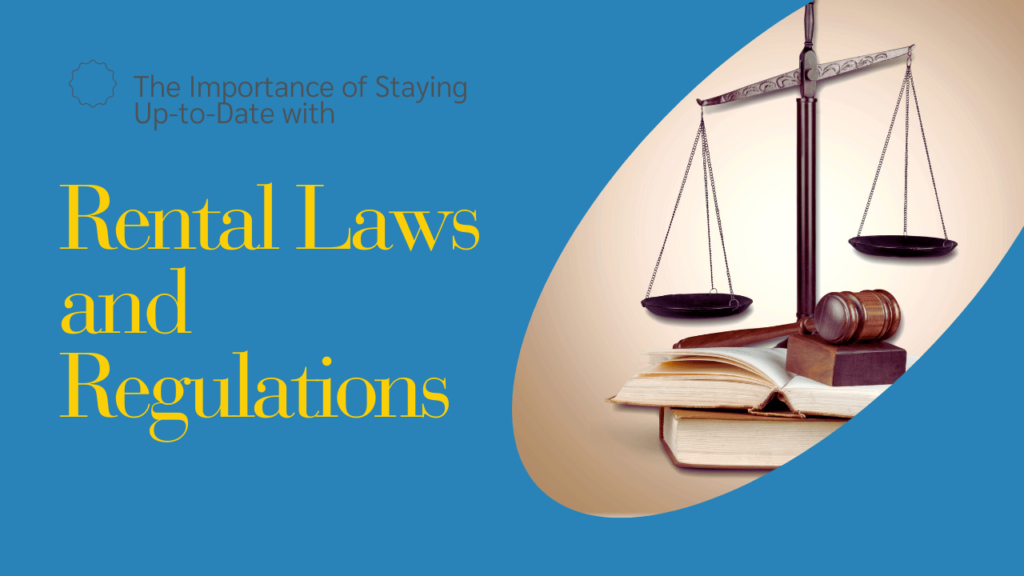
As professional Killeen property managers, we see landlords make a lot of mistakes. The most common mistakes that are made are often legal mistakes. There are a number of state, federal, and local laws that need your attention when you’re renting out a property. If your’e not familiar with what these laws are, you need to educate yourself. If you cannot find the time or the interest to learn about these laws and requirements, make sure you’re working closely with a Killeen property management company. It’s essential that you stay up to date with the current laws and the new laws that may be coming in the next year or two.
Legal mistakes are easy to make, and they can be detrimental to what you earn on your rental property. Fair housing claims and security deposit judgments can be expensive. Protect yourself and your property by staying up-to-date.
Here’s a look at why it’s so important to be aware and compliant, and what some of the biggest blind spots tend to be for landlords like you.
Why Rental Property Owners Need to Know the Laws
You’re renting out a home to people. This is a lot more involved than selling a product or a service to someone. The thing that you’re providing is a home. It has to be habitable. It has to be safe. It has to be functioning. If it’s not, people could be in danger.
You need to know and follow the laws because you want to keep your tenants safe. You also want to respect their rights.
As a landlord, you get access to a lot of personal information about your tenants, and even your applicants. They’re handing over their private information, including social security numbers, employment information, and bank account information. You have access to their financials, their landlord references, their credit scores, and even their criminal histories.
There’s a lot of responsibility that comes with that, and you want to be a good steward of the information you collect. This is one of the most important reasons to understand and follow the laws. You don’t want to be in a position where you’re irresponsible with someone’s financial data. If you deny an applicant based on their credit, for example, you have to send out a denial letter with very specific language. Knowing this will protect you and your applicants.
You need to know the laws so you can respect your tenants and their privacy. For example, tenants are entitled to the quiet enjoyment of their home. You cannot show up every week expecting to be let inside. That’s invasive and it is unnecessary. By understanding the laws that protect a tenant’s privacy rights, you won’t be tempted to make a nuisance of yourself or to drive away good tenants by taking up too much of their time and space.
Another good reason to know the laws? To protect yourself.
You don’t want to find yourself wrapped up in an investigation of a fair housing violation. No landlord wants the Department of Housing and Urban Development (HUD) poking around their business practices. By following the laws, you’re making the rental process easier on yourself.
Fair Housing Laws Protect People from Discrimination
You’re staying up-to-date on the latest laws and requirements because it’s good business practice.
You’re also doing it because you want to be a good human.
No one wants to be discriminatory. You don’t want to intentionally discriminate against prospective tenants based on things like race, religion, or disability. But, if you don’t know the fair housing laws, you might find yourself discriminating against an entire class of people without realizing it.
Fair housing laws require you to treat every applicant and tenant consistently. You cannot deny a tenant’s application because you don’t want to rent to someone with children. You cannot refuse to renew a lease agreement because you’d rather rent to someone of a different cultural background.
Get to know the seven protected classes listed in the federal Fair Housing Act. Make sure you understand how easy it is to discriminate without even thinking about it. The wrong language in your marketing materials or different screening standards from tenant to tenant can get you in a lot of trouble. Learn the laws so you can avoid that trouble.
In addition to knowing the Fair Housing Act and the way fair housing laws are applied in Texas, you also need to understand the Americans with Disabilities Act (ADA). This law protects people with disabilities. It requires you to ensure that your building is ADA-compliant if you’re renting out units in a multi-family home. It requires you to allow service animals and companion animals even if you don’t allow pets.
When a tenant moves in with a service animal or a support animal, you cannot charge a pet fee. You cannot charge pet rent. Only under certain circumstances can you ask for documentation by a medical professional that the support animal is necessary. Get to know these requirements so you don’t find yourself facing a discrimination claim from a tenant with a disability.
Texas Property Code Requirements
How familiar are you with the Texas Property Code?
If you’re renting out a property in Killeen, you need to understand the section that pertains to rental properties and the standards that must be met before you allow a tenant to move in. Here is just a brief list of what needs your attention:
It’s a pretty in-depth list of the things you’ll need to do before renting out a property, and here are some of the most important highlights:
- Peepholes are required on all exterior doors. This provides tenants with an opportunity to see who is out there before they open the door.
- Locks that bolt from the inside are also required on exterior doors. This allows tenants to lock themselves into the property from the inside.
- Sliding doors on patios need to have extra locking mechanisms.
- Smoke detectors and carbon monoxide detectors need to be functional and placed in all the necessary rooms and hallways.
If you’re not sure whether your rental property is compliant with the Texas Property Code, consult a local property management company in Killeen.
Understanding Security Deposits for Killeen Rental Properties
Security deposits can be particularly difficult.
The particulars of how to collect, hold, and return a security deposit are pretty straightforward. Landlords collect security deposits from tenants to protect themselves against damage, unpaid rent, and lease breaks. At the end of the lease term, you have 30 days to return the deposit to the tenant’s forwarding address. If you are withholding all or some of the deposit, you also need to send an itemized statement of the charges you’re making against that deposit.
And here is where things can get tricky.
If you’re up-to-date on the security deposit laws and regulations, you know that you’re permitted to charge for damage to your property. You can withhold money from the deposit for unpaid rent and utilities. You can charge the deposit for cleaning costs.
You cannot charge for normal wear and tear.
We see a lot of disputes between landlords and tenants over what’s normal wear and tear and what’s damage. So, you need to know what the law says, and how the courts will interpret the charges you’re making against a deposit.
Normal wear and tear doesn’t have a legal definition, but it can be generally defined as the deterioration that takes place in a home regardless of who is living there. The worn carpet in high-traffic areas could be considered wear and tear. The small nail holes in the walls from where tenants hung paintings and pictures are considered wear and tear. If there’s scuffing on the walls or floors from where furniture was placed – that’s wear and tear. You cannot charge the security deposit for these things. You’ll have to pay for the repairs and updates yourself as the property owner.
Tenant damage is anything that occurs as a result of neglect, abuse, or misuse. If all of the window screens have been ripped or torn by cats, you can consider that damage. When the walls have large holes or the floors are missing tiles, you can consider that damage. Appliances that stop working, because they were misused by a tenant or a tenant’s child, can be repaired or replaced with a security deposit.
You need to have documentation that supports your claims against the deposit. Photos from the move-in and move-out inspections are especially critical. This will help you demonstrate that the property looked one way before tenants took possession and another way after they left.
These are only a few of the laws that you need to be aware of. In Killeen, you also need to understand the eviction process, including timelines and paperwork that’s required. If you’re not prepared to stay up-to-date on the Killeen rental laws, we strongly urge you to partner with a property management company that can protect you and your investment.
 We’d be happy to work with you, of course. If you have any questions about this blog or anything pertaining to Killeen property management, please contact us at Shine Residential Management.
We’d be happy to work with you, of course. If you have any questions about this blog or anything pertaining to Killeen property management, please contact us at Shine Residential Management.
